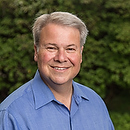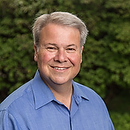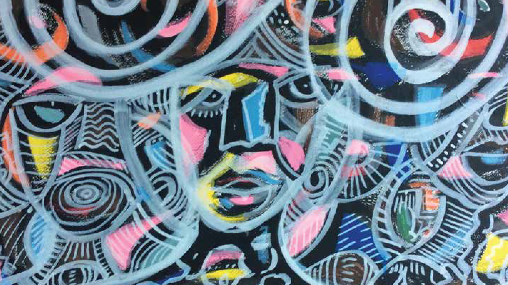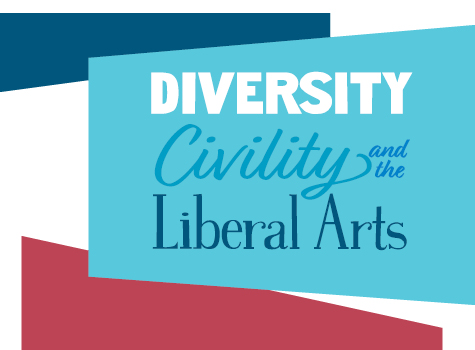Page 10 • (191 results in 0.092 seconds)
-

Associate Professor of Music - Voice | School of Music, Theatre & Dance | johnsobw@plu.edu | 253-535-7625 | Baritone Barry Johnson is enjoying a successful career as an opera singer, stage director, concert performer, and voice teacher.
Barry Johnson Associate Professor of Music - Voice Phone: 253-535-7625 Email: johnsobw@plu.edu Office Location: Mary Baker Russell Music Center - 341 Office Hours: (On Campus) Mon - Fri: By Appointment Professional Biography Additional Titles/Roles Co-Director of Opera Production/Workshop Director of Knights Chorus Education M.M., Music/Vocal Performance and Pedagogy, University of Colorado, Boulder, 1989 B.M., Music/Choral Education, University of Arizona, 1985 Responsibilities Teaches Applied
Office HoursMon - Fri: - -

Associate Professor of Music - Voice | Music | johnsobw@plu.edu | 253-535-7625 | Baritone Barry Johnson is enjoying a successful career as an opera singer, stage director, concert performer, and voice teacher.
Barry Johnson Associate Professor of Music - Voice Phone: 253-535-7625 Email: johnsobw@plu.edu Office Location: Mary Baker Russell Music Center - 341 Office Hours: (On Campus) Mon - Fri: By Appointment Professional Biography Additional Titles/Roles Co-Director of Opera Production/Workshop Director of Knights Chorus Education M.M., Music/Vocal Performance and Pedagogy, University of Colorado, Boulder, 1989 B.M., Music/Choral Education, University of Arizona, 1985 Responsibilities Teaches Applied
Office HoursMon - Fri: - -
An Interview with Dr. Patrick Moneyang by Rebecca Wilkin
anxiety, and that I need to adapt my pedagogy to help these students still have a great classroom experience. Rebecca: So, what do you like to do for fun? Patrick: I am a happy person and I like things that help me stay active and make me laugh. I like having a good laugh at myself…
-

Cover art by Ta-coumba T. Aiken Intersections, Number 50, Fall 2019 Intersections is a publication by and largely for the academic communities of the twenty-seven institutions that comprise the Network of ELCA Colleges and Universities (NECU). Each issue reflects on the intersection of faith, learning,…
these intersect with contemporary challenges, opportunities, and initiatives. This issue explores: Diversity, Equity, and Inclusion. Preview essays in this issue with the individual links below: Making Diversity Matter: Inclusion is the Key Dr. Monica Smith The Perils and Promise of Privilege Guy Nave The Vocation of White People in a Racist Society Caryn D. Riswold Learning the Language of Inclusive Pedagogy David Thompson The “V” Word: Different Dimensions of Vocation in a Religiously Diverse
-

PLU has been selected to send a team to participate in the Council of Independent College’s 2019 Diversity, Civility, and the Liberal Arts Institute taking place in Atlanta, GA on June 2nd-5th. One of twenty-five campus groups selected via a competitive application process, PLU’s team…
basic understandings about race, gender, and other identities; historical interpretation and authority; social justice; social and political change; the hidden effects of stereotyping; inclusive pedagogy; and free speech issues; [and] develop realistic plans to enable their institutions to strengthen diversity and civility on campus, both inside and outside the classroom.” The team hopes to engage the campus in using the lessons from the institute to aid in the ongoing development of the Diversity
-
The mission of the PLU Chemistry Department is to provide high quality educational programs for all students who study chemistry at PLU.
environment, or designing new sensors? A degree in chemistry will provide you with the knowledge and skills needed to pursue those career paths. There are many reasons why studying chemistry at PLU is a great choice. The Department of Chemistry has an outstanding curriculum, excellent faculty who teach using inclusive pedagogy, and has been approved by the American Chemical Society to offer certified degrees for over 50 years. Chemistry students at PLU get hands-on experience using research-grade
-

Sunday, December 4 at 5 pm PLU Music Professor and Organist Paul Tegels will play Bach Cantata Vespers and a Mozart Church Sonata for organ and strings at the historic downtown Portland’s St. James Lutheran Church on Dec. 4. The Bach Vesper will feature Cantata 61, Nun komm…
have a weekly organ seminar and plenty of performance opportunities both as a soloist and accompanist. Paul TegelsPaul Tegels, a native of the Netherlands, is Associate Professor of Music, and serves as University Organist at PLU. He received his Doctor of Musical Arts Degree in Organ Performance and Pedagogy and his Master of Arts Degree in Choral Conducting from the University of Iowa, where he studied organ with Delores Bruch, and choral conducting with William Hatcher.Learn More Read Previous
-
No courses in music (MUSI) may be taken for credit by examination. First-Year Students Students intending to major in music should begin the major music sequences in the first year.
421: Functional Piano for the Professional Musician (2) MUSI 445: Conducting III (1) MUSI 453: Vocal Pedagogy (2) MUSI 460: Elementary Music Methods (3) MUSI 462: Choral Repertoire and Rehearsal (3) Choose five credits from the following: MUSI 241: String Lab I (1) or MUSI 242: String Lab II (1) MUSI 243: Woodwind Lab I (1) or MUSI 244: Woodwind Lab II (1) MUSI 245: Brass Lab I (1) or MUSI 246: Brass Lab II (1) MUSI 247: Percussion Lab (1) MUSI 321: Guitar Lab (1) MUSI 325: Class Composition I (2
-
“This residency -- compressed time -- has provided me with time, with time out of time, that has allowed me to immerse myself in language, in my contemporaries, in the writing world.”
in poetry, fiction, and nonfiction. Classes are also offered on issues of pedagogy, and how to build and maintain a writing practice and community beyond the MFA. Each participant is free to create their own menu of classes during the residency, regardless of the participant’s primary genre. A participant who is primarily a poet, for example, may opt to take classes in nonfiction, while a participant involved with writing a memoir project may choose to take classes in fiction. During the
-
The success of the Wild Hope Center for Vocation is due, in large part, to the work of faculty mentors who engage students with questions of meaning and purpose—in the classroom, in casual
meaningful living, and to discuss ways to mentor students to live into the PLU mission. Each seminar group will meet to study and discuss a variety of matters vital to their profession as faculty at PLU. They will discuss some important historical materials and debates about vocation, various contemporary issues in pedagogy and higher education, and related controversies in contemporary society and academic disciplines. These discussions will intersect with consideration of PLU’s mission and individual
Do you have any feedback for us? If so, feel free to use our Feedback Form.


